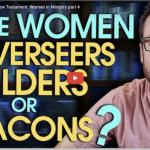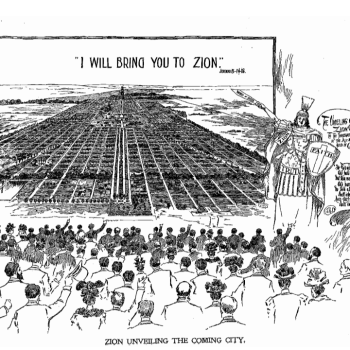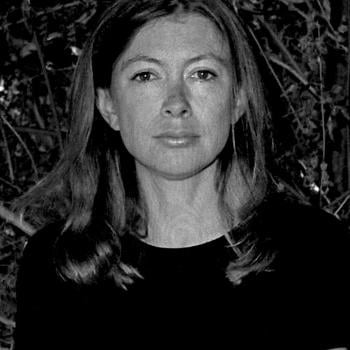As some of you may have heard, earlier this fall, the Rev. Charles Melvin Sherrod, a minister, civil rights leader, and life-long community organizer, died in Albany, Georgia at the age of 85.
I wrote briefly about Sherrod and his impact on the freedom struggle for the Washington Post, but wanted to also take a moment here to expound, very informally and personally, on some themes from his remarkable life. Over the past several years, in working on a biography of Charles Sherrod and his wife, Shirley Miller Sherrod, I’ve had the great privilege of spending significant time with Sherrod. Not only face-to-face, in occasional interviews, but time spent pondering long-ago actions, listening to discarded audio footage, pouring over Sherrod’s handwritten notes and newspaper clippings. This time “with” him has been a joy and has offered the following profound reminders:

-God raises up prophets from unexpected places. Sherrod was from rural Virginia, born to a teenage mother, raised in desperate, choking poverty and the oppression of Jim Crow. He grew up selling scrap metal for money and hearing adults whisper about lynchings. What good can come out of Nazareth? But these desperate circumstances cultivated in Sherrod a deep humility and awareness of the mysteries of God’s upside-down kingdom. With SNCC, Sherrod worked among the rural pool in Georgia, people for whom he had great compassion and understanding. Indeed, he was one of them.
-Faith is a life-long gift. Sherrod heard the Lord’s voice from a young age. In Mt. Olivet Baptist Church, in the prayers of his grandmother Ida, he understood God’s specific, personal love for Him. He knew that God identified with the poor and the suffering. He trusted that God would never forsake him. This proved true even in the face of the dehumanization of segregation, the violence of white supremacists, the disappointments of encountering systemic racism. Even after attending Union Seminary and working in ministry for decades, Sherrod held fast to the same truths he had known since childhood: God knew him and was for him.
-Freedom from the “fear of death” is freedom indeed. In 1961, Sherrod and several others were thrown into prison in Rock Hill, South Carolina in their attempt to challenge segregation. They were beaten, mocked, and finally put into a terrifying solitary confinement known as the “Hole” for “refusing to stop singing hymns during their morning devotions.” Sherrod knew the rural South; he understood how easily he might be killed. But, Sherrod recounted to me, “I was already in my progress of praying to take away fear.” So he prayed from the Hole. And a passage that would become a touchstone in his life, indeed one read at his funeral last month, came to him: “For I am convinced that neither death nor life, neither angels nor demons,[k] neither the present nor the future, nor any powers, neither height nor depth, nor anything else in all creation, will be able to separate us from the love of God that is in Christ Jesus our Lord.” And in that moment, he believed it to his depths. Not even death could separate him from Jesus. So he had nothing to fear. Sherrod was free and he would live with this fearless assurance of God’s love the rest of his life. As he told me: “Those verses have led me through my life and led me into the slashing of fear. With whom I stood before men who have slain many black men. Men whom I knew had killed blacks before they stood before me. And I stood before them without fear, without one shaking finger or knee, knowing that the Lord with me.”
-Not only was Sherrod free from the fear of death, he was free from the fear of man. He knew his own mind, held to his principles, and didn’t cower to pressure. At one point, in the early 1960s, Sherrod was in a meeting with then Attorney General Robert Kennedy, who was trying to convince the young activists that they should pursue voter registration rather than civil disobedience. Unbowed, Sherrod stated: “You, sir, are a public servant, and your job is not to tell us what to do but to protect us when we exercise our constitutional rights.” He was similarly resolute when the Student Nonviolent Coordinating Committee shifted towards Black separatism in the mid- 1960s, insisting on a philosophy of nonviolent interracialism despite pressures.
-Despite this ability to stand firm, Sherrod worked for unity and community cohesion when possible. Even years after establishing himself as a Movement veteran, a seasoned activist, he would ask for community input on direction, goals, strategies. He would wait on consensus, even if it took hours, wanting the people to decide and for decision to be communal. Sherrod also employed humor to break tension. Quick with a joke and a smile, Sherrod loved to jibe and kid to show affection or tacitly ask people to lighten up. He was in possession of, frankly, a bizarre vocabulary, utilizing phrases that might have made people scratch their heads at points but also shake them in loving affection. Leadership requires patience and good humor to foster unity.
-And prayer. As one Movement volunteer recalled, “everyone who went down to Southwest Georgia remembers the prayer meetings.” Sherrod prayed all the time, in private and in public. He would pray in the mornings and evenings, he would pray from prison, he would pull the car over on the highway to pray. God was listening. God was working. And so he prayed. Sherrod’s life reveals that prayer is a way we commune with God, experience God’s presence, receive wisdom and power and direction.
-Finally, the life of Charles Sherrod embodies faithfulness over the long haul. Throughout his life, Sherrod experienced triumphs and tragedies, gains and losses. He saw Black Americans beaten in the streets and the passage of the Voting Rights Act, he once farmed the largest Black-owned plot of land in the United States only to see it dispossessed by systemic discrimination, he watched the first Black president sworn into office only for him to fire his wife after she was slandered by right-wing media. He witnessed the undulations of history. But he was a faithful witness. He prophesied truth and called others to love. He continued to sow goodness and righteousness in times of plenty and times of drought. He continued in faithful obedience until the end. We do not know what the days hold, we cannot predict the seasons, but we don’t have to. We must simply be faithful witnesses and sowers, trusting that there will be a harvest, someday, “if we do not give up.” That’s what Charles Sherrod did. And I am so grateful.
Miss you, Rev. See you soon.












